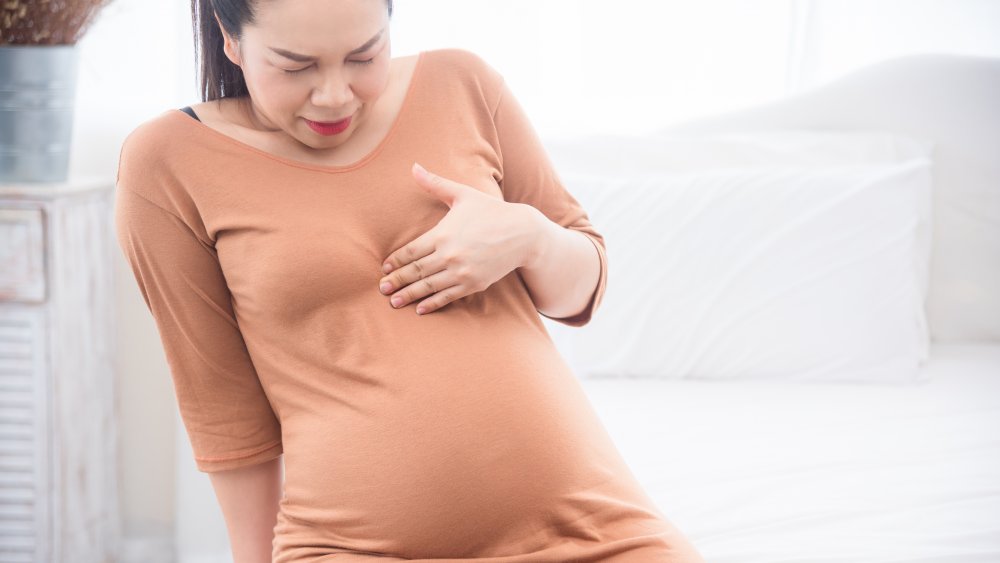The Real Reason You Experience Heartburn While Pregnant
Rejoice! You have finally put sometimes-debilitating morning sickness in the rearview mirror and are home free for the rest of your pregnancy when it comes to annoying digestion-related side effects. Okay, hold up. Because just as you are throwing a mini-celebration that you can eat foods other than crackers and drink another liquid beyond ginger ale, heartburn can set in. Sorry to be the bearer of bad news, but this pesky problem can last until you deliver, according to What to Expect.
Like many other gestational delights (mood swings, exhaustion), we have hormones to thank for heartburn. The body releases progesterone and relaxin, which in turn relaxes the muscles of an expectant woman's GI tract and slows down digestion. The valve connecting the stomach to the esophagus may not close properly, allowing stomach acid to creep up where it doesn't belong. And, hello heartburn!
The worst part is that for some women, it doesn't matter what you eat — heartburn can still rear its ugly and painful head (via KidsHealth). And as your uterus (and baby) grow, it's going to press up against the stomach, possibly leading to worsening symptoms.
How to treat heartburn in pregnancy
There is relief in sight, though — and not just after you are holding your baby in your arms. Although any food may cause stomach acid to climb your esophagus during pregnancy, certain foods can exacerbate the condition, such as citrus fruits, and spicy fare, as well as drinking caffeine (which should be avoided anyway while expecting). Eating small, frequent meals may help, according to KidsHealth. If you find your heartburn is really bad, you can try drinking liquids separately from eating meals. Another good tip: Don't eat reclining, or right before you go to bed.
Although you should check with your doctor first, certain medications are widely considered okay to take to treat heartburn, even while pregnant. Pop Tums or Rolaids if avoiding certain foods and overeating aren't doing the trick. You may need to resort to something stronger, but again, talk to your doctor before trying a new medication to treat your symptoms.
Finally, know you are in good company, since according to Healthline, up to 45 percent of women experience heartburn during pregnancy. And this too shall pass.

